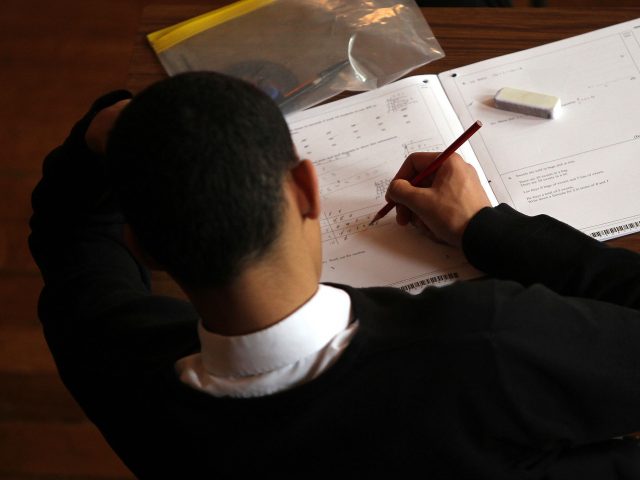Almost one in four teenage girls are depressed, researchers have found.
Experts found that 24% of 14-year-old girls and 9% of boys the same age are depressed. The authors said the figures showed “worryingly high rates of depression” among youngsters.
They also questioned whether parents know the true extent of levels of depression among teenage girls after finding a discrepancy between self-reported depressive symptoms and the estimations of parents.
Researchers from the UCL (University College London) Institute of Education and the University of Liverpool examined data on more than 10,000 children born in 2000/01 who are taking part in the Millennium Cohort Study.

Parents were questioned about their children’s mental health when their youngsters were aged three, five, seven, 11 and 14.
When the participants were 14, the children were themselves asked questions about mental health difficulties.
The research, published with the children’s charity the National Children’s Bureau, showed that girls and boys had similar levels of emotional problems throughout childhood until adolescence when problems became more prevalent in girls.
Based on the responses, the researchers calculated that almost a quarter of girls and one in 10 boys aged 14 suffer from depression.
But the teenagers’ responses about emotional problems were different to their parent’s perceptions, the authors found.
Gender affects how young people cope with mental health difficulties. We spoke to 100+ CYP for their views: https://t.co/Mq2ZQoxHNZ pic.twitter.com/2QsTy154tE
— NCB (@ncbtweets) September 14, 2017
They found that parents identify more boys and fewer girls with depressive symptoms. This may mean that some parents may not be aware of their daughter’s depression, the authors added.
They also found that boys of all ages have greater behaviour problems than girls. And children from richer families were less likely to report depression compared to poorer peers.
“In other research, we’ve highlighted the increasing mental health difficulties faced by girls today compared to previous generations and this study further highlights the worryingly high rates of depression,” said lead author Dr Praveetha Patalay.
Anna Feuchtwang, chief executive of the National Children’s Bureau, added: “Worryingly there is evidence that parents may be underestimating their daughters’ mental health needs. Conversely, parents may be picking up on symptoms in their sons, which boys don’t report themselves. It’s vital that both children and their parents can make their voices heard to maximise the chances of early identification and access to specialist support.”
Commenting on the finding, Dr Marc Bush, chief policy adviser at the charity YoungMinds, said: “It’s crucial that mental health services are properly funded, with a focus on early intervention.
“As a society, we also need to do far more to prevent mental health problems from developing in the first place. To start with, we need to rebalance our education system, so that schools are able to prioritise wellbeing and not just exam results.”
Claire Murdoch, national mental health director at NHS England, said: “NHS services for children and young people are expanding at their fastest rate in a decade.
“This year, the NHS will treat an additional 30,000 children and young people, supported by an additional £280 million of funding.
“The report demonstrates how critical it is that all services – schools, youth services as well as the NHS – play their part in spotting problems early, and offering solutions.”






